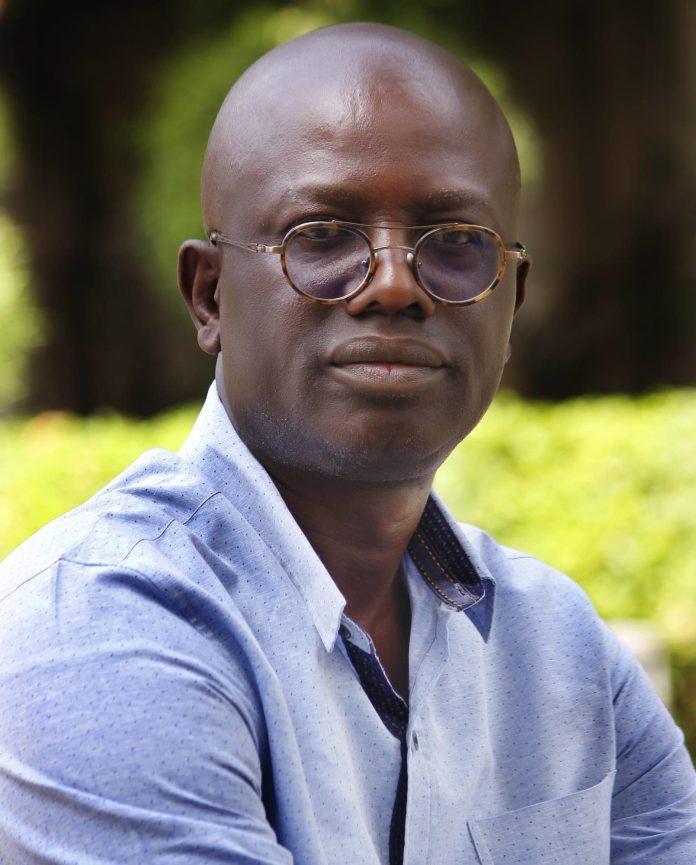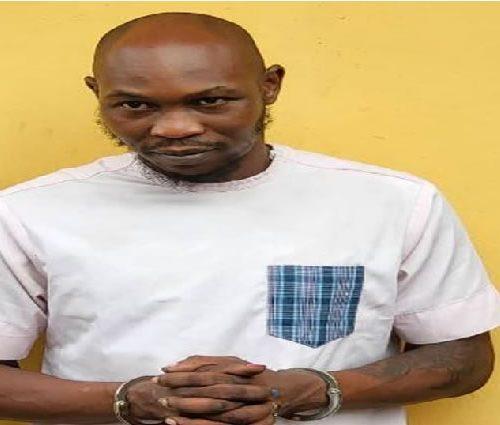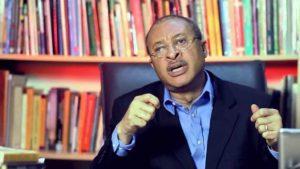Since he who asserts must prove, the onus is now on the Zamfara State Governor, Bello Matawalle to provide evidence that the Economic and Financial Crimes Commission (EFCC) chairman, Abdulrasheed Bawa, demanded a bribe of $2 million from him. “It is not just to always blame governors. It is not only governors who have treasury, the federal government also has. What does the EFCC boss do to them? As he is claiming he has evidence on governors, let him show to the world evidence of those at the federal level,” Matawalle said in a recent interview with BBC Hausa Service. “If he (Bawa) exits office, people will surely know he is not an honest person. I have evidence against him. He requested a bribe of $2 million from me and I have evidence of this. He knows the house we met, he invited me and told me the conditions. He told me governors were going to his office, but I did not. If I don’t have evidence, I won’t say this.”
The battle between Matawalle and Bawa is bound to be interesting, beginning from next week when the governor would have been stripped of his immunity from prosecution. I choose to reserve my opinion until the governor presents concrete evidence to back his weighty allegation, but Bawa must understand that you don’t fight corruption with street gossip or fishing for evidence. What irks Matawalle is the reported invitations to outgoing governors and their commissioners over alleged corruption and abuse of office. Targeting state governors while turning a blind eye to the misdeeds in Abuja, according to Matawalle, is unacceptable.
Whatever his motivation, Matawalle has a valid point on the EFCC modus operandi. The idea of ‘probe’ that the commission revels in is a throwback to the military era when accused persons were presumed guilty until they could prove their innocence. Under democracy and the rule of law, the presumption is that of innocence until evidence is adduced in a court of law to secure conviction. Leaving federal officials to target governors, as self-serving as Matawalle’s argument may be, is also wrongheaded. There are several federal government agencies that manage resources far bigger than what is available to all the states combined. Yet, heads of these agencies are never subjected to public ridicule like governors routinely are by the EFCC, as Matawalle stated.
Meanwhile, the commission should be concerned about its future under the presidency of Bola Ahmed Tinubu. Two years ago, Governor Babajide Sanwo-Olu signed into law a controversial bill that empowers the Lagos State Anti-Corruption Commission to take over “all anti-corruption and financial crimes cases” involving the finances and assets of the state government being investigated by any other agency.” The executive bill initiated by the governor enjoyed speedy passage by the House of Assembly before being signed into law. Section 13(5) says, “The Commission shall have power to the exclusion of any other Agency or body to investigate and coordinate the investigation of corruption and financial crime cases involving the finances and assets of the State Government.” The Lagos law was meant to castrate the EFCC whose powers over states have always been in contention. We wait to see what Tinubu will do with EFCC once he moves from the passenger’s side to the driver’s seat of power in Nigeria, but the Commission’s problem goes beyond one man.
In January this year, a former Nigerian Bar Association (NBA) president, Mr Olisa Agbakoba, SAN, questioned the legality of EFCC on several actions, especially regarding states. Section 214(1) of the constitution (as amended), according to Agbakoba, says: “There shall be a police force for Nigeria, which shall be known as the Nigeria Police Force, and subject to the provisions of this section, no other police force shall be established for the Federation or any part thereof.” Since EFCC was a creation of the National Assembly (and none of the constitutional amendments we have had over the years has inserted it into the Constitution), Agbakoba avers that the commission does not have the powers to interfere with the activities of state governments. “The Supreme Court in many of its decisions has held that federalism means two autonomous and independent governments and if that is correct, the EFCC does not have the right to go to the state and examine their accounts,” Agbakoba argued.
Established in 2003, there is no doubt that the EFCC has done much in the past two decades to fight corruption. The commission has secured high-profile convictions, especially of governors, and helped to raise the consciousness of Nigerians regarding the lack of transparency and accountability that defines public service in our country. But it is also evident that the EFCC is derailing, and its method is becoming counterproductive. Naming and shaming may have its use, but it is neither sustainable nor is it the right way to fight a serious crime. There are many glaring examples to cite but one stands out.
Shortly after Mr Willie Obiano handed over as Governor of Anambra State on18th March 2021, he was intercepted and stopped from travelling to the United States, arrested, and transferred to Abuja. While being held incommunicado, the EFCC let it filter out that Obiano was being held for fiddling with the ubiquitous ‘security vote’ and was to account for some N47 billion. Then the EFCC leaked a video of Obiano being interrogated by their operatives as well as a photograph of him in an undignifying posture. While the uproar that greeted the unprofessional conduct was yet to die down, Bawa hit the media with allegations about another unnamed governor. “Very soon, Nigerians are going to see some of the things that we are doing. I can tell you for free that the new Department of Intelligence that we have created is working wonders. They have come up with a lot of intelligence,” Bawa said. “In one of them, a governor in a Northcentral state within the last six years (one individual) has withdrawn over N60 billion in cash.”
We hope the EFCC has a watertight case against this “N60 billion in cash” Northcentral governor. But nobody is surprised that despite the drama, the Commission has not been able to press any serious charge against Obiano. It is typical. Two years ago, the Corruption and Financial Crimes Cases Monitoring Committee (COTRIMCO) set up in November 2017 by the then Chief Justice of Nigeria, Justice Walter Onnoghen, blamed delays in financial crimes cases on a combination of factors, but chiefly on poor prosecution. According to COTRIMCO, “offenders are charged to court before proper investigations of the charges are done, and afterwards, expecting the court to detain such alleged offenders till conclusion of their investigations”.

As I have reiterated many times on this page, fighting corruption goes beyond making sensational claims not backed by evidence. What is required are investigative and legal structures that will lead to trials and convictions of those who are guilty, without tarnishing the reputation of innocent people. That Nigerans are not yet able to draw the line between when the EFCC is putting up a media show and when it is engaged in the nitty gritty of fighting corruption is the reason the Commission is fast losing credibility.
Beyond the Matawalle and Bawa battle, there are interesting days ahead for the EFCC. Whatever happens, the Commission must understand that fighting corruption requires some measure of tact and sobriety. Investigation of such serious crimes takes time, painstaking efforts and a coherent strategy founded on due process of law. The Gotcha approach that has become EFCC standard practice, as I have highlighted on this page several times in the past, can only provide momentary entertainment. That is not what Nigeria needs at this time given how the malaise has almost destroyed the moral fabric of our society. Not to mention the economy. What we require is a thorough, methodical, and strategic war against corruption. It is not too late for the EFCC to change their tactics.
Dangote: Nigerian Name, Global Brand
On Monday in Lagos, Alhaji Aliko Dangote raised the stakes higher when President Muhammadu Buhari was joined by colleagues from Ghana, Togo, Niger Republic, Senegal, and a representative of the Chadian president to commission his mega refinery. Situated on 6,180 acres (2,500 hectares) of land at the Lekki Free Trade Zone, the Dangote Refinery boasts of the largest sub-sea pipeline infrastructure in the world (1,100 kilometres) for crude supply. And with the capacity to process about 650,000 barrels per day, it is also the largest single-train refinery in the world.
While I join in commending Dangote for breaking business barriers on the continent, I am aware that there are people who do not share in the euphoria of the moment. I have heard the argument that Dangote enjoys enormous government patronage and support for his projects. And not all of them can be dismissed as sour grapes. When a man amasses the humongous wealth available to Dangote in our kind of environment, there will always be legitimate questions to ask, especially by competitors. But as the late global icon, Mr Nelson Mandela of South Africa, also reminded us in the counsel he gave to his country’s music star, Yvonne Chaka Chaka, “It is what we make of what we have, not what we are given, that separates one person from another.”
Former Cross River State Governor, Mr Donald Duke, once told me that he first met Alhaji Aliko Dangote in 1978 (the year he started his trading in commodities) and that he could still remember his (Dangote’s) business contemporaries at the time in Lagos. After reeling out a few names that I was hearing for the first time, Duke muttered: “only God knows where those guys are today. So, that tells you something about Dangote’s resilience”. From sugar to salt to flour to fertilizer to frozen fish to baby food to poly bag to cement, Dangote was just another trader (and importer) less than three decades ago. Today, he is a producer of some of those commodities not only for our country but also for the African market.
Last month, at the invitation of its Chief Upstream Operating Officer, Mr Bala Wunti, I was in Lagos to speak at the Annual Value Assurance Review (AVAR) of the NNPC Upstream Investment Management Services (NUIMS). But as I recalled in a short piece that I wrote the day after, the most insightful presentation came from Dangote who shared some of the challenges he faced while trying to build the refinery. He was compelled to construct his own port at Lekki. He erected over 200 kilometres of gas pipelines across different projects. He built his own power plants. He bought his own cranes and mined his own granite. There is hardly any sector that Dangote has not had to invest in because of the absence of critical infrastructure that can support mega projects in Nigeria. What his story therefore teaches is that as tough as the Nigerian business climate may seem, those who dare still wins.
Meanwhile, the interesting subtext to the Dangote Refinery story is the role played by three principal characters: Ibikunle Amosun, Dapo Abiodun and Babatunde Raji Fashola. The refinery was to be cited at the Olokola Free Trade Zone in Ogun State then governed by Amosun. Chairman of the trade zone at the time was Abiodun, the current governor. When the project could not fly in Ogun State after several months of negotiations, Dangote came to Lagos where Fashola (then state governor) embraced the idea. But it was a herculean task convincing Ibeju Lekki landowners and Lagos white cap chiefs to buy into the project. At one meeting in 2014 where Fashola “handed over” Dangote to these chiefs, there was open dissent. But he was determined to have the project in Lagos. Given what transpired a decade ago, if the project had failed, those who conspired against Dangote in Ogun State would probably be hailed today for their “foresight”. Now that it has worked out, the same people are reading from the Book of Lamentations while those who opposed Fashola in Lagos nine years ago are waxing lyrical about the refinery. Such is life!
I congratulate Dangote on this rare feat as I wish him success in his next frontier-breaking endeavour.
Source: Newspot




















